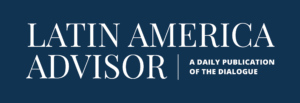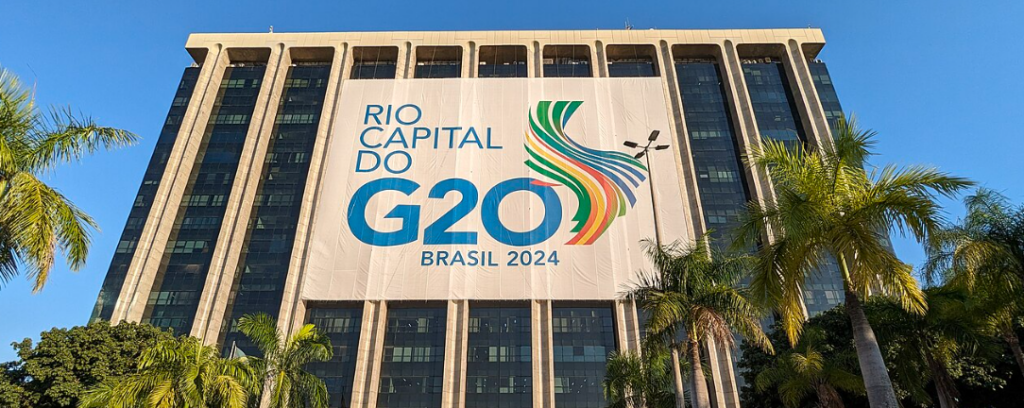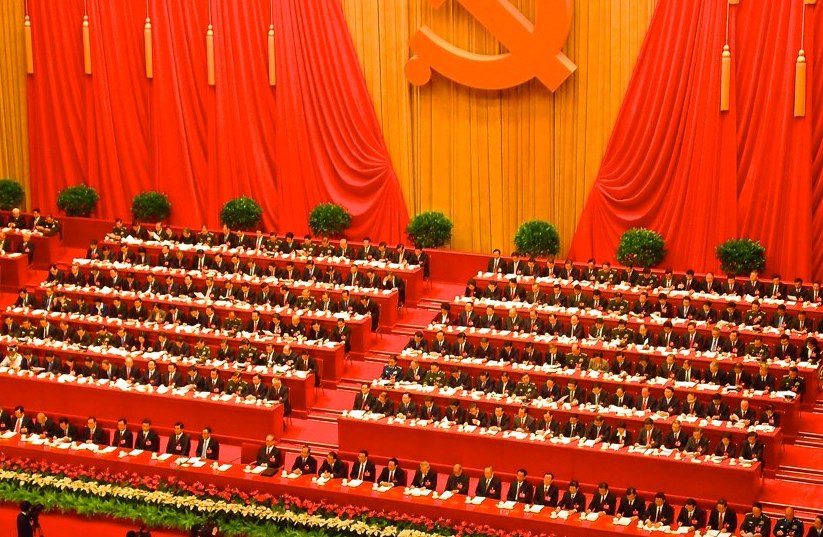This post is also available in: English Português
Brazil will host its first G20 economic summit in Rio de Janeiro on November 18-19. The summit is happening amid cooling inflation and moderate economic growth across much of Latin America, and in the wake of the U.S. presidential election and Venezuela’s disputed vote. What are governments—particularly those of member states Argentina, Brazil and Mexico—hoping to achieve at the upcoming summit? What is this year’s G20 likely to display about the state of international politics in the region? What does it mean for Brazil to host the summit?
Dorotea López Giral, director of the Institute of International Studies at the Universidad de Chile in Santiago: “The recent election of President Donald Trump and his approach to multilateral institutions create a new landscape for the upcoming G20 meeting. This summit represents a crucial platform for Latin America to reclaim its place in the global dialogue surrounding investment, cooperation and development, given its historical underrepresentation among middle-income nations. There is a growing advocacy from regional civil society for equitable and progressive policies on climate change, energy transition, the digital economy and the regulation of artificial intelligence. Brazil faces a significant responsibility: to ensure the summit’s success while bringing the region’s priorities to the forefront. President Lula stands out for the introduction of a wealth tax aimed at generating resources to effectively combat hunger. This initiative, supported by ECLAC, invites critical dialogue on the implementation and equitable distribution of the revenue collected. The Global Alliance Against Hunger and Poverty proposal seeks a coordinated international effort to address the structural challenges affecting millions in the region. For Argentina, which needs to attract investment to reactivate its economy under the leadership of President Javier Milei, the G20 could provide a vital platform to capture the attention of international investors. The confirmation of Mexican President Sheinbaum to attend the summit could reflect a renewed commitment from the country to engage actively in international affairs. However, her capacity to exert influence may be constrained by domestic challenges, especially following the election of a new U.S. president. The G20 presents a vital opportunity for Latin American countries to come together and advocate for increased recognition and collaboration on pressing issues relevant for the region. The ability of these nations to articulate their needs and propose effective solutions will be crucial in ensuring that their voices resonate on the global stage.”
Joshua Simon, associate professor of political science at Johns Hopkins University: “President Biden will travel to Brazil for the G20 summit not only as a lame duck, but as the human representation of a bygone era of international politics. The G20 is, likewise, a product of that bygone era. It is a fundamentally technocratic forum, where heads of state appear for photo opportunities while bureaucrats work furiously behind the scenes, dedicated to the proposition that the complex challenges that arise out of global economic interdependence can be solved, or at least ameliorated, if enough clever men and women put their minds to it. By electing Donald Trump to a second term as U.S. president, the American electorate has issued a decisive rejection of that proposition and of the era of international politics that it animated. In this, the United States joins counterparts throughout much of Western Europe, where incumbent after incumbent has been hoisted on petards of technocratic post-pandemic social spending, climate policy and compliance with international laws governing migration and refugees. The future of foreign policy in these regions is impossible to foresee, unpredictability being the confessed strategy of Trump and his ilk. But what of the G20’s president and host, Brazil, and of the other Latin American member states, Argentina and Mexico? Each has had its own brushes with populism, distinctly à-la-Trump in the case of Brazil’s Jair Bolsonaro and Argentina’s Javier Milei. However, Mexico’s Claudia Sheinbaum, a celebrated climate scientist and experienced administrator, demonstrates that populists need not repudiate expertise and cooperation to demand redress of calcified domestic and international hierarchies. And Brazil, under Lula, has chosen as its priorities for the upcoming summit the eradication of hunger, the transition to renewable energy and the reform of international institutions, like the U.N. Security Council, that have been frozen by veto-wielding permanent members. When Biden campaigned for president in 2020, he promised to serve as a ‘bridge’ to a new generation of leaders. He failed—spectacularly—and it seems unlikely that his country will help the world find a bridge to a new era of international politics. But there are signs of such leadership arising elsewhere, including Brazil and Mexico.”
Júlia Henriques Souza, political risk consultant for Control Risks in São Paulo: “Current conflicts are one of the key pressure points within the G20. Last year, the group failed in its final resolution to build a consensus on addressing the Russia-Ukraine war. The escalation in the Israel-Hamas conflict also touches on diplomatic sensitivities and strong demands from the global civil society. Both conflicts will be topics of interest during the summit, but high-level representatives will likely try to steer clear from the issues due to the difficulty of securing unanimity on the matter. Closing out its presidency, Brazil is bringing attention to three points: a potential international system governance reform, combating hunger and climate change. Brazilian Indigenous and environmental conservation groups demand concrete measures to protect the Amazon and the control of greenhouse gas emissions from the government, but President Lula will likely push issues on climate change in a less tangible way, more focused on principles, as a strategy to build consensus. Due to the anticipated impact of the second Donald Trump term on the country, Mexico will likely be a relevant actor in this year’s discussions at the G20. This is also the first participation of Mexico’s new president, Claudia Sheinbaum. The G20 will be her first opportunity to showcase a commitment to tackle climate change, poverty and illegal immigration. The first two topics will resonate with Mexicans, while the latter will be a focal point in U.S.-Mexico relations. Argentina will also participate in the event, though it is not fully aligned with its Latin American peers. President Javier Milei will likely not follow Brazil’s push for the taxation of large fortunes and environmental conservation. Milei is, however, highlighting other shared interests in communications with Brazil, as the country is Argentina’s main commercial partner.”
Amanda Mattingly, former U.S. diplomat and founder of ACM Global Intelligence: “In theory, diplomats and heads of state will attend the G20 economic summit to talk about social inclusion, global governance reform and the energy transition. But in reality, they will gather in Rio to talk about Trump. This is an overstatement, of course, but in the wake of the U.S. presidential election, these leaders will be looking for ways to engage on sustainability, poverty and multilateralism itself in the face of a second Trump term and the likely withdrawal of U.S. leadership on these issues. They remember the first Trump term, when he withdrew the United States from the Paris Agreement, threatened to leave NATO and was openly hostile to the United Nations. Trump’s antipathy for global world order via multilateral engagement is no secret. For Latin America, it will mean winners and losers. Argentina’s President Milei will likely emerge as an ascendant voice calling for further right-wing, conservative policies aligned with Trump ideology. While Mexico’s new president, Claudia Sheinbaum, will likely be looking for allies like Brazil’s President Lula to lend support for a left-wing ‘Sowing Life’ agenda to tackle poverty and defend national sovereignty. Lula is no loser in this scenario—it’s a big deal to host the G20, after all—but his efforts to lead on global climate policy will almost certainly come up against the hard truth of resurgent Trump denialism. But of all the winners and losers at the G20 next week, President Biden stands alone in the most unenviable position of trying to convince world and regional leaders that Trump is an aberration in American politics, when we all now know he is not.”
 The Latin America Advisor features Q&A from leaders in politics, economics, and finance every business day. It is available to members of the Dialogue’s Corporate Program and others by subscription.
The Latin America Advisor features Q&A from leaders in politics, economics, and finance every business day. It is available to members of the Dialogue’s Corporate Program and others by subscription.



